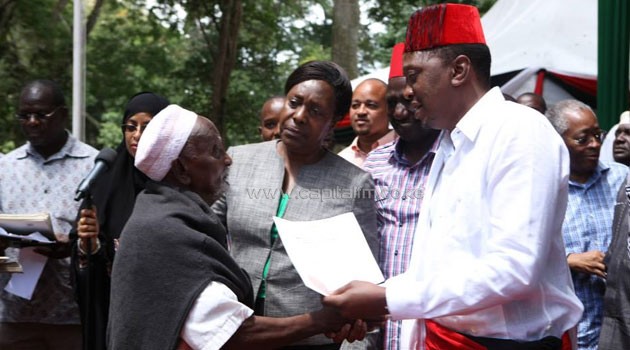The new law will aim to provide a definition of historical land injustices and a framework for resolving them.
But despite the establishment of a National Land Commission (NLC) and recent statements by President Uhuru Kenyatta, some analysts doubt the law will either bring real change or resolve the country’s land crisis.
Injustices in the allocation of land rights have been a recurring factor in outbreaks of violence at different times and in different parts of Kenya. They began in British colonial times, and in some cases were compounded by the way territory was divided up after Kenya achieved independence in 1963.
The result is that there are places in Kenya where whole communities feel their traditional lands were handed over to incoming groups favoured by whoever was in power at the time, and more generally, a sense that land rights have been mismanaged and illegally distributed. Enduring resentments over these issues often come to the fore when politicians seek electoral support from the communities involved.
After two months of bloodshed left over 1,100 Kenyans dead following a disputed presidential election in December 2007, the Waki Commission, set up to investigate the unrest, reported that one of the major causes was the failure of past administrations to address land disputes.
Later in 2008, the then president Mwai Kibaki and his prime minister Raila Odinga signed an agreement committing the coalition government to work on land reforms as a key way of avoiding any recurrence of mass violence.
The Kenyan Constitution, passed by national referendum in 2010 guarantees citizens equal access to land, requires that land use benefit local communities, and prohibits the appropriation of publicly-owned areas.
A bill currently being drafted by the NLC has raised hopes that tensions and disputes can be resolved.
Samuel Tororei, the chairman of the NLC task force, told IWPR that the legislation will define historical land injustices and set out guidance on how to resolve them.
The bill is scheduled for completion by December this year. It will be scrutinised by the NLC before being tabled in Parliament for debate by February 2015.
“In order to deal with these injustices comprehensively, we have to have a law that sets the standards, a law that will be exhaustive,” Tororei told IWPR. “The law will prescribe remedies for each complaint and have a systematised approach.”
According to Tororei, the new measures will be a significant improvement on the current situation where the courts issue case-by-case decisions on individual disputes.









































